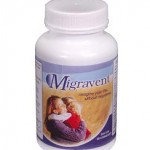The most common signs of neuropathy are chronic pain and numbness in the extremities (hands and feet), but there are many other important symptoms that sufferers don’t know to look out for. See this list of the most common signs of neuropathy.
If you experience any of the symptoms listed below frequently, then it’s important to tell your doctor immediately.
Neuropathy can occur from vitamin B12 deficiency, autoimmune illness, diabetes, alcoholism or several other underlying conditions.
35 signs of neuropathy
In a survey conducted on nearly 1,000 people diagnosed with some type of neuropathy, the majority reported experiencing some of the following symptoms moderately or severely:
- Tingling, stinging in the hands and feet
- Crushing fatigue
- Weak muscles
- Burning sensations
- Chronic pain
- Painful numbness in the hands and feet
- Hypersensitivity in pain points on body
- Difficulty standing or sitting for long stretches
- Difficulty walking, gait disturbances
- Balance problems, dizziness
- Sensitivity to very cold and very hot temperatures
- Muscle spasms, twitching
- Fluctuating body temperature
- Pain that worsens in the evenings
- Itching in the extremities
- Lightheadedness when getting up
- Eye problems
- Crawling sensation
- Constipation
- Reduced reaction to pain stimulus
- Scalp irritation, itching
- Changes in perspiration
- Vertigo
- Diarrhea
- Increased heart rate
- Urinary Incontinence
- Reduced sensitivity to changes in temperature
- Nausea
- Head pain
- Reduced appetite
- Impotency
- Frequent urinary tract infections (UTI’s)
- Unhealthy weight loss
- Frequent vomiting
- Facial swelling
Neuropathy treatments
Treatment for neuropathy depends on the cause. For diabetic neuropathy, it’s important to wear tight socks and check your hands and feet frequently for cuts and bruises. Also, if you take metformin, then you may need to supplement with vitamin B12 regularly, as this diabetes drug prevents proper absorption of vitamin B12 in food, leading to vitamin B12 deficiency.
Peripheral neuropathy is a typical symptom of pernicious anemia (autoimmune vitamin B12 deficiency), so again vitamin B12 is rated as a crucial supplement for preventing symptoms.
Other treatments that help with neuropathy are pain relief creams, alcohol avoidance, exercise, smoking cessation, prescription medications for neuropathy.
What other signs of neuropathy have you experienced? If you found this helpful, then please share with others who suffer from neuropathy or are involved in neuropathy awareness groups.
Image by imagerymajestic


